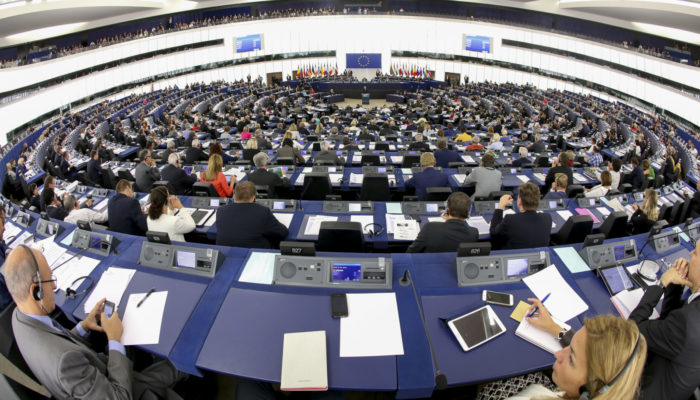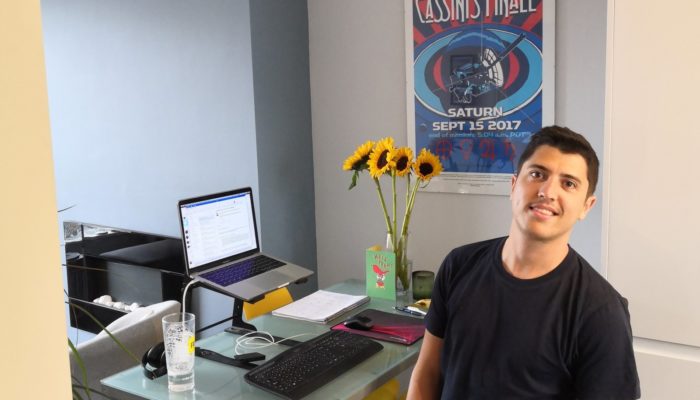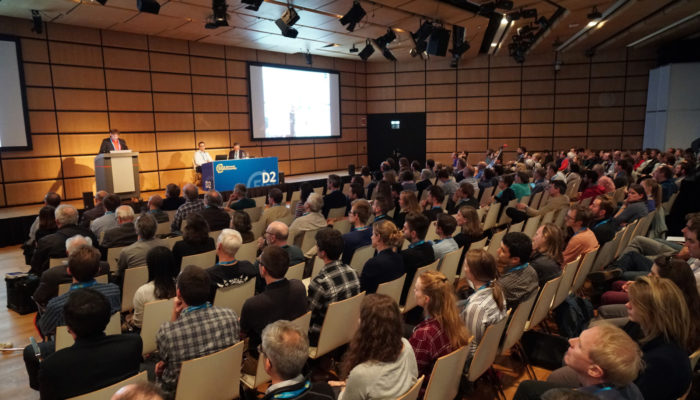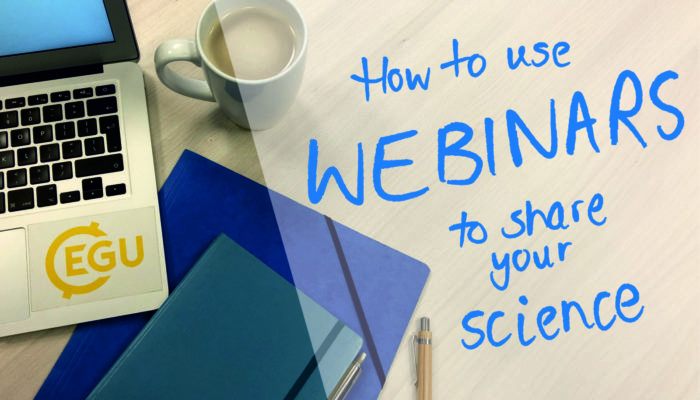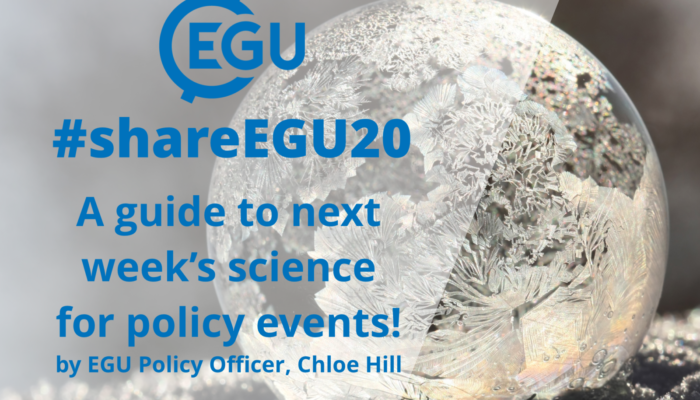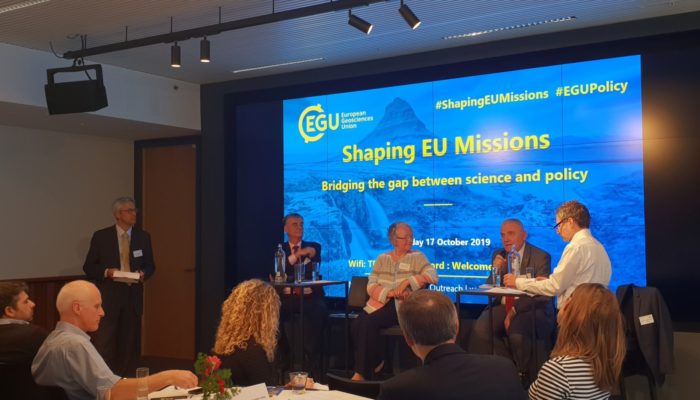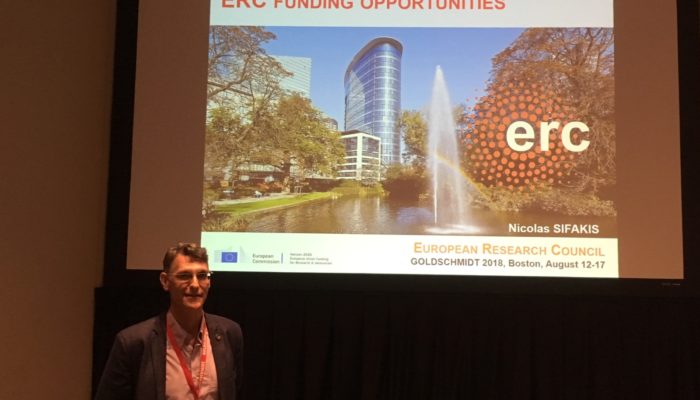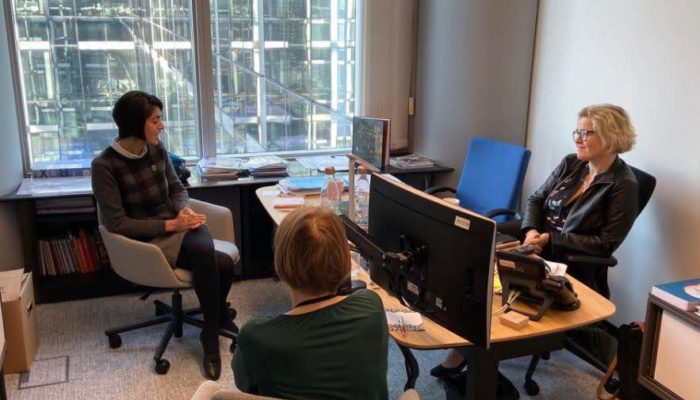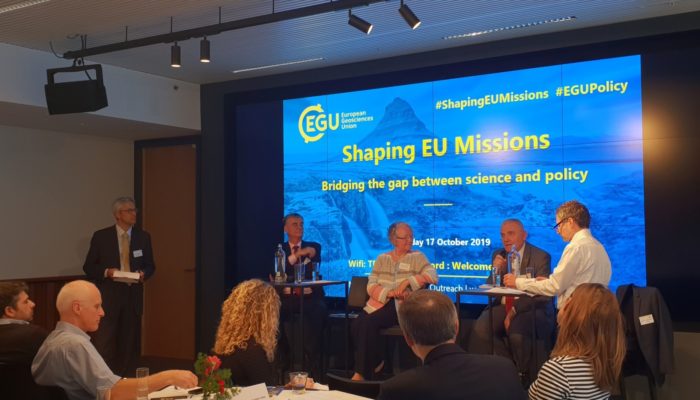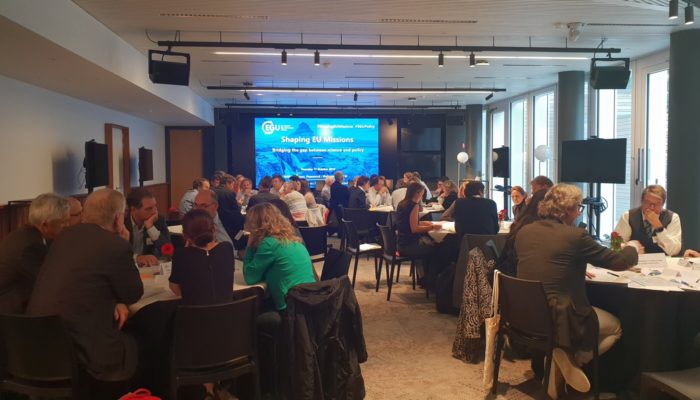As a European scientific union with over 20,000 members, the EGU is well positioned to provide feedback on the current and future state of research and innovation funding in Europe. The recent cuts to the EU’s 2021-2027 research budget from European Parliament’s initial proposal of €120 billion to the current proposal of €81 billion (at 2018 prices), will not only affect researchers througho ...[Read More]
If you didn't find what you was looking for try searching again.
GeoLog
GeoPolicy: A window into a career in Science Policy, as EGU’s first Policy Intern.
My name is Ned Staniland and I am a third year PhD student in space physics at Imperial College London. I study the magnetic field of Saturn using data from the Cassini-Huygens mission that was launched in 1997. In July 2020, I was lucky enough to be EGU’s first intern where I worked in their policy and communications team. Finding an Internship Since the beginning of my PhD, I have kept an eye ...[Read More]
GeoLog
GeoPolicy: Communicating A Global Climate Crisis – your questions answered!
A wide variety of webinar sessions were streamed during EGU 2020’s Sharing Geoscience Online, including all of the Great Debates and Union Symposia. The sessions were very well attended, with some sessions having over 700 participants. An extremely high level of engagement meant that in many cases not all of the participants’ questions could be answered in the available time. Union Symposium ...[Read More]
GeoLog
GeoPolicy: How to use webinars to share your science with a wider audience!
Since the explosive spread of COVID19, the way most academics work has changed and it can sometimes feel like we’re all living on conference calls, Skype and online events. While this may not suit everyone’s preferred working style, it’s difficult to deny that people are now more willing to engage online and it’s worth thinking about how we can take full advantage of this new method of working! Ha ...[Read More]
GeoLog
GeoPolicy: Getting involved with science for policy during #shareEGU20!
This year, EGU’s science-policy related sessions will be run a little bit differently! In case you haven’t already heard, EGU will be hosting EGU2020: Sharing Geoscience Online (#shareEGU20) from 4-8 May 2020 in place of the physical General Assembly. While this fully online event is in response to the COVID-19 crisis, it is also an opportunity to experiment with online networking and ...[Read More]
GeoLog
GeoPolicy: Interview with the former President of the European Research Council – Jean-Pierre Bourguignon
I recently had the honour of interviewing Professor Jean-Pierre Bourguignon, who completed his six-year term as the President of the European Research Council (ERC) at the end of 2019. As an award-winning mathematician, he has been a fellow of the Centre National de la Recherche Scientifique for most of his career. Bourguignon held a Professor position at École Polytechnique (1986-2012) and served ...[Read More]
GeoLog
GeoPolicy: How to become a Seconded National Expert for the European Commission
The European Seconded National Expert programme is a fantastic opportunity for scientists who are currently working in a national, regional or local public administration of an EU member state or an intergovernmental organisation to gain experience working within a European policy institution. In most cases, secondments are between six months and four years during which time the Seconded National ...[Read More]
GeoLog
GeoPolicy: My experience with the EGU’s science-policy pairing scheme
“Thanks for coming, but no time for celebratory drinks,” I told my colleagues. I arrived in Brussels right after defending my doctoral thesis to brief the Finnish Member of the European Parliament (MEP) Miapetra Kumpula-Natri and her team about the impact of sea-level rise and climate change on the coastal communities of the Baltic Sea. Climate science? Baltic Sea? EU Parliament? I was soon bombar ...[Read More]
GeoLog
GeoPolicy: Communicate Geoscience? Let’s do it!
This month’s GeoPolicy Column was written by Alexander Roesner, a researcher at MARUM (the Center for Marine Environmental Sciences) and the winner of the EGU’s 2019 ECS Policy Competition, which provides the winner with funding to attend the EGU’s science-policy event, Shaping EU Missions in Brussels. Roesner outlines his motivation for applying for the competition and reflects on his experience. ...[Read More]
GeoLog
GeoPolicy: Shaping EU Missions – bridging the gap between geoscience and policy
This month’s GeoPolicy blog post is a Q&A about the EGU’s second annual science-policy event, Shaping EU Missions: bridging the gap between geoscience and policy which was hosted in Brussels on October 17 2019. The EGU has an annual event outside of the General Assembly?? Yes! Except this one is much smaller with about 70 participants and relatively new (only starting in 2018). Th ...[Read More]

